Want to learn more about comprehensive genomic profiling using liquid biopsy? Start here.

Medical Education and Resources
Oncology research moves quickly - Foundation Medicine’s Medical team is committed to providing education to help you keep up with the newest developments in comprehensive genomic profiling (CGP).
Check out our topic guides below or click here to browse our full educational library.
Have questions for your Medical Science Liaison (MSL) or want more education for your institution?
Foundation Frontiers - An Educational Webinar Series
Visit our YouTube channel for the full menu of Foundation Frontiers webinars, plus short case study videos! Webinar topics include liquid biopsy in NSCLC (non-small cell lung cancer), prostate cancer, and breast cancer.

ctDNA Tumor Fraction
ctDNA tumor fraction improves confidence in driver-negative liquid biopsy results from Foundation Medicine. Check out the resources below to learn more.
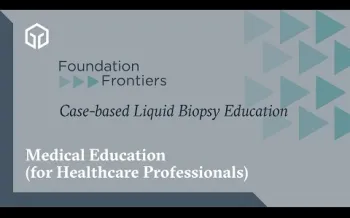
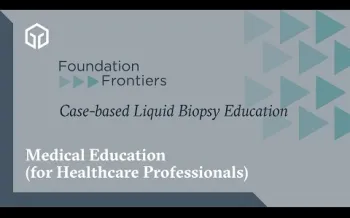
ctDNA tumor fraction case studies
Learn about ctDNA tumor fraction through two case studies.
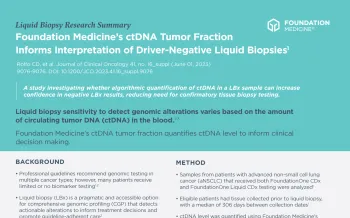
Research summary
Read about our recent publication by Rolfo et al, which examined ctDNA tumor fraction and Foundation Medicine liquid biopsy concordance with tissue biopsy.
Fusion Detection
Fusions and rearrangements are less common than mutations, but when present, they may be highly targetable alterations. Learn about how comprehensive genomic profiling (CGP) enables fusion detection in tissue and liquid biopsy samples.
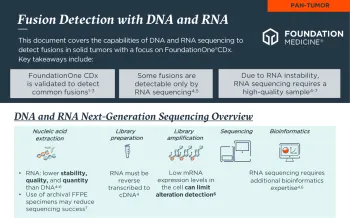
Fusion Detection with DNA and RNA
Read about the complementary roles of DNA and RNA sequencing for fusion detection in solid tumor tissue samples.
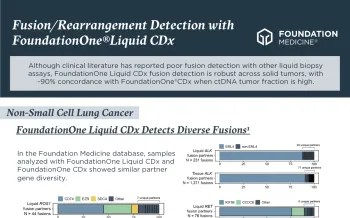
Fusion Detection in Liquid Biopsies
True or False: Liquid biopsy can be used to detect targetable fusions. Get the answers here.
HRD Signature
HRD signature (HRDsig) is a scar-based, pan-solid tumor biomarker that identifies a population that may be sensitive to PARP inhibitors. Check out the resources below to learn more.

What is Homologous Recombination Deficiency
To learn more about HRD, start here with our introductory guide!


HRDsig in Ovarian Cancer
Explore more about HRDsig in ovarian cancer, including our latest research from Richardson, et al.